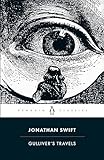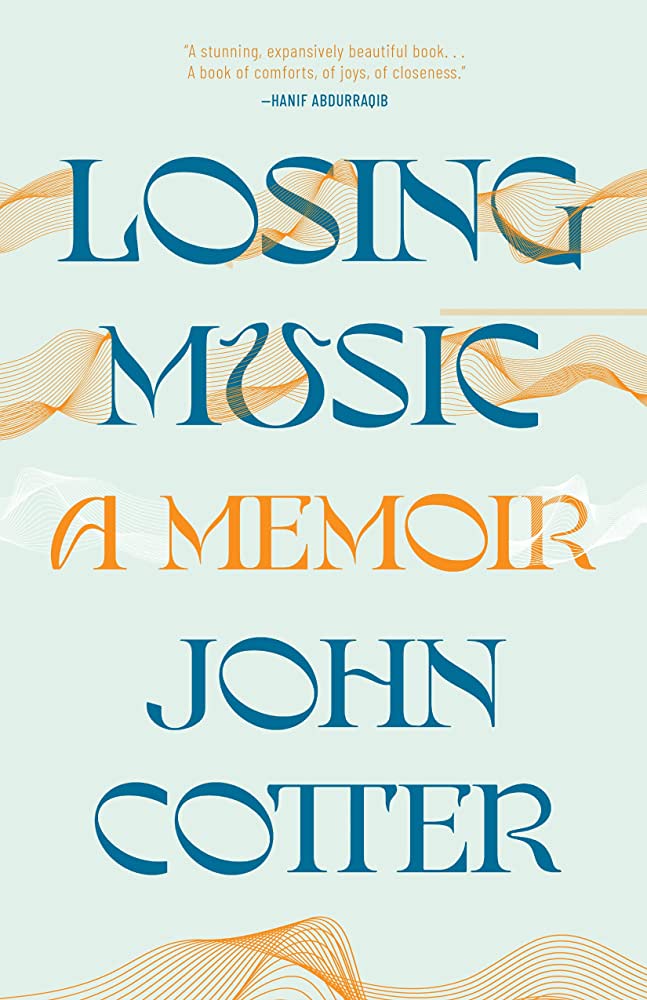Like author John Cotter, I have bi-lateral Ménière’s disease. I have spent years trying to understand and manage this impairment with its crazy-making mix of fluctuating hearing loss, raging tinnitus, and spinning vertigo. So I came to Cotter’s memoir Losing Music as in an attack, grasping for a steady ground. This book does for Ménière’s what great memoirs focused on strange illnesses should do—it educates us about a specific condition, invites us to witness how the author manages his, and compels us to consider how we all manage our own adversities. Cotter shows well just how hard it is to accept and live with this condition.
Ménière’s disease has no known cause and no known cure, yet Cotter urgently seeks out experts to better understand it, anchoring his story through visits to specialists in Denver, Chicago, Boston, at the Mayo Clinic, Yale, and the House Institute in Los Angeles. None of these doctors offer much hope or help, but it’s Cotter’s yearning for both knowledge and relief that propels the well-structured, and ultimately engrossing, narrative.
The author’s first experience of hearing loss comes while he’s driving from Boston to Portland, Maine, when he suddenly notices that the music he’s listening to sounds strange. He turns the volume up but finds he’s missing full words. Later, he finds he can’t hear the ocean, then birds. What he can hear is strange noises inside his own head, often ridiculously and relentlessly alarming, sometimes so loud they’re painful. A ringing sound rises to a shrill whistle before becoming a freight train at full throttle. What first puzzles Cotter is that his hearing can shift from being “normal” to abnormal within a week, a day, even an hour. This frequent fluctuation in both volume and clarity is a key symptom—and frustration—of Ménière’s. He is not only alarmed at losing specific sounds but the worlds those sounds once allowed him to inhabit: “Bach on a snowy afternoon, hard blues on a long night’s drive, the background mood in a restaurant or at a party.” The feeling is one of losing life’s color, its essence and meaning; life’s pleasures for him had often been tied to specific pieces or genres of music.
A poet, essayist, and novelist before the onset of his condition, and only just establishing his teaching and writing career, Cotter is 33 when his hearing fails, followed by a terrible loss of balance. Barely able to stand, he needs a cane or a friend to get around. Dizziness turns from mild to outrageous and then to full-on vertigo. Sometimes, for a week or a month at a time, he can’t rise from bed. He loses teaching jobs, his income, and eventually his savings as he tramps through a fog of hypotheses and speculations, all rising to anxiety, and finally despair. For years he is too rattled to write. Eventually, when not in the throes of his most severe bouts of vertigo, Cotter finds writing possible. It gives him purpose.
His fears, unfortunately, are very real. Will he lose all his hearing and become entirely deaf, an outcome for some Ménière’s patients? If so, how quickly? Will he have to stop working? Driving? Will he lose his friends? Reasonably, he asks, if his life has become so altered, how much of his past was wasted? And if he has children, will he pass the disease to them?
In waves of sensory details, Cotter vividly renders his neurotological reality. So vividly that as I devoured his book through a snowy Northeaster that roared through and quieted all of southern and coastal Maine, I too began to feel ill.
 After several years, Cotter experiences periods when his balance isn’t terrible and his hearing is sort of okay. He takes short-term teaching gigs and projects he can complete in his own time, all the while continuing his research into the disease and its famous patients of the past. He spends long stretches at Harvard’s Widener Library rekindling his professional interest in Gulliver’s Travels author Jonathan Swift, a subject of Cotter’s teaching, who likely had the disease. Cotter quotes Swift, writing in 1736: “years and Infirmatyes have quite broken me. I mean that odeious continual disorder in my Head. I neigher re[a]d, nor write, nor remember, nor converse.” Every person I know with Ménière’s can identify with feeling broken, unable to read, write, remember, or converse. And frustrated by how little more help there is for it, 300 years later.
After several years, Cotter experiences periods when his balance isn’t terrible and his hearing is sort of okay. He takes short-term teaching gigs and projects he can complete in his own time, all the while continuing his research into the disease and its famous patients of the past. He spends long stretches at Harvard’s Widener Library rekindling his professional interest in Gulliver’s Travels author Jonathan Swift, a subject of Cotter’s teaching, who likely had the disease. Cotter quotes Swift, writing in 1736: “years and Infirmatyes have quite broken me. I mean that odeious continual disorder in my Head. I neigher re[a]d, nor write, nor remember, nor converse.” Every person I know with Ménière’s can identify with feeling broken, unable to read, write, remember, or converse. And frustrated by how little more help there is for it, 300 years later.
Like most people with serious hearing loss of any kind and duration, hearing aids are one weapon in Cotter’s arsenal, but he doesn’t want them. Whatever they magnify, he feels they can’t do justice to his lost natural hearing. He rails at how ineffective they are in comparison to the corrective contact lenses that restore perfect vision to his visually impaired partner. No hearing aids provide such a return. He finds an approximation of sound, maybe a decent approximation for most days, but not a return to Bach on a snowy afternoon, hard blues on a late-night drive, mood music at a party.
Strange, unforgiving, and incurable illnesses sink some of us. Cotter struggles to adapt. Occasionally, this can grate on a reader as he devolves into self-pity. But really it’s hard not to pity oneself when the world is in full spin. He’s always prided himself on his smarts and literary talents, enjoyed trading quick-witted banter with friends. Suddenly he feels marginalized—as most with profound hearing loss do—living outside the lively conversation of others. He sees himself turning into someone who, pre-Ménière’s, he probably wouldn’t have wanted to spend time with. Eventually he begins to understand the futility of his defeatism, perhaps less quickly than readers will. He brings many assets with him into this disease—a good education (exemplified in his amusing recitation of long passages of Yeats to quiet himself when undergoing anxiety-producing medical testing), success in his field, a loving partner who becomes his wife, a loyal band of friends, and sufficient resources to make numerous trips to specialists across the country.
Occasionally Cotter covers ground that I’m not sure his readers need covered, such as the nature of the fight-or-flight response, which is fairly common knowledge. And sometimes he adds description we could do without, as when, in dialog, his partner reacts strongly to one of his outbursts; “She was hurt,” Conner adds, when her own words suffice.
His experience of Ménière’s sounds especially tough, one that nearly fells him. He sinks into depression, then despair, contemplates taking his life, and communicates a plan for doing so. He believes he’s a burden to his family and friends. I can identify; another person with Ménière’s once told me, “Ménière’s won’t kill you, but you might wish it did.”
Eventually Cotter finds his own safe-ish ground, buoyed by a cocktail of medications, hearing aids, sheer perseverance, and the love of those around him. With his wife’s help, he realizes he’s not “deaf John,” but John. He begins to tune into the very subtle changes in his body that signal his attacks. He accepts that his relationships have to change: He spends his best time with those who matter and gets used to acknowledging his impairments with casual acquaintances. “Eventually you grow less shy about it,” he writes. He is no longer afraid to ask a restaurant host for a seat against a wall; when he’s exhausted from asking friends to repeat themselves or enunciate more clearly in conversation, he sometimes nods and pretends. Before, requesting accommodation or performing normalcy would have panicked him. “I’m not panicked now,” he writes toward the end of the book. “The vertigo is not bad, for one: I can walk as though on a tossing ship—the waves aren’t strong enough to toss me overboard.”
This is what progress looks like with Ménière’s, and he’s right to claim it. But isn’t this how we all must deal with the panics in our lives? Seeking to understand them, trying to keep them from throwing us overboard, and holding tight to those who love and accept us as we are. More than about Ménière’s, Losing Music is a powerful addition to the memoir canon—hard-hitting, beautiful, profound—a story of finding safe ground in a world regularly buffeted by very rough seas.









